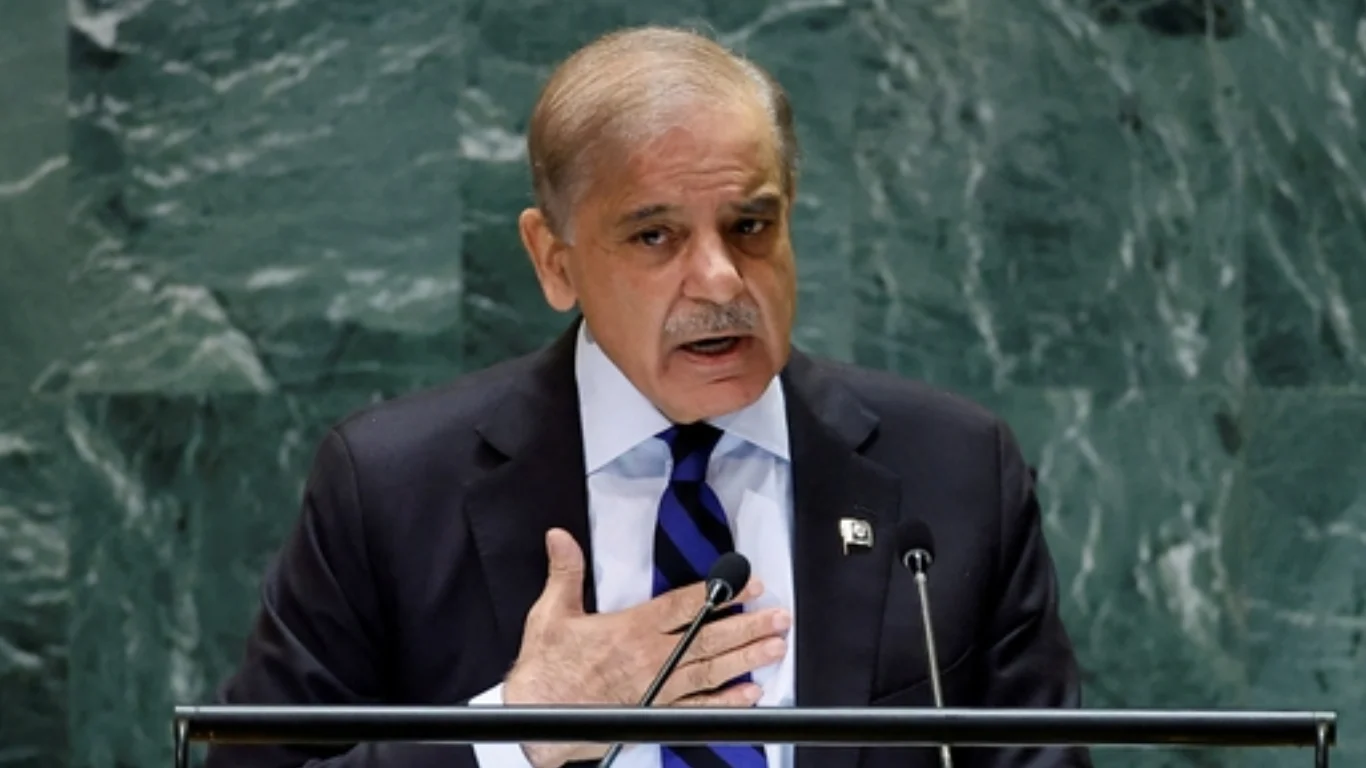
In a bizarre twist during the intensifying standoff between India and Pakistan, a post from the official X account (formerly Twitter) of Pakistan’s Ministry of Economic Affairs sparked widespread confusion and criticism on Friday. The post appeared to issue a desperate appeal for international financial assistance, citing heavy losses inflicted by India and growing fears of economic collapse amid rising military tensions. The message, shared early in the day, read: “Govt of Pakistan appeals to International Partners for more loans after heavy losses inflicted by enemy. Amid escalating war and stocks crash, we urge international partners to help de-escalate. Nation urged to remain steadfast.”
The timing and tone of the post quickly drew attention both domestically and internationally, especially as it coincided with a sharp escalation in hostilities between the two nuclear-armed neighbours. However, within hours, the Ministry of Economic Affairs issued a clarification, asserting that the account had been “hacked” and that the statement did not originate from official sources. “We are working to have the Twitter (X) switched off,” a spokesperson from the ministry told Reuters, adding that appropriate cybersecurity measures were being taken and the matter had been escalated to relevant authorities.
Despite the clarification, the incident was widely circulated across social media platforms, adding an unexpected and somewhat surreal dimension to an otherwise volatile geopolitical crisis. Critics, including opposition politicians and media commentators, questioned how such a sensitive government account could be compromised at a time when public communication and perception management are critical. While the Pakistani government insisted that the message was unauthorized, screenshots had already gone viral, prompting a mixture of outrage, mockery, and concern.
The post came amid one of the most serious escalations between India and Pakistan in recent years. On May 7, 2025, the Indian Armed Forces launched Operation Sindoor, a high-intensity military response targeting nine terrorist infrastructure sites in Pakistan and Pakistan-occupied Jammu and Kashmir (PoJK). These strikes were carried out in retaliation for the April 22 Pahalgam terror attack, in which 26 Indian civilians were killed. The attack, believed to have been orchestrated by terror groups operating from Pakistani soil, drew sharp condemnation from Indian leadership and sparked widespread public anger.
According to defence sources, Operation Sindoor involved a coordinated missile and drone offensive, conducted with precision to avoid civilian casualties while dismantling operational bases, weapons stockpiles, and communication hubs used by militant organizations. The Indian Army released footage of the strikes, and for the first time, key military briefings were led by women officers—Colonel Sofia Quraishi and Wing Commander Vyomika Singh—who, alongside Foreign Secretary Vikram Misri, informed the public of the operation’s scope and success.
Pakistan responded with threats of a “befitting reply,” vowing to retaliate against what it called Indian aggression. Within 24 hours, multiple drone and missile launches were detected targeting Indian military bases across Jammu, Pathankot, and Udhampur, prompting India to activate its integrated air defence systems. Indian forces successfully intercepted the projectiles, and retaliatory strikes were initiated, including an air assault that neutralized a Pakistani air defence installation in Lahore. These actions underscored the rapid military escalation and raised fears of a broader conflict.
Amid this charged atmosphere, Indian Defence Minister Rajnath Singh addressed the nation, striking a balance between firmness and responsibility. “India has always played the role of a responsible nation exercising great restraint. We believe in resolving issues through dialogue,” he said during a press briefing. However, he was unequivocal in his warning: “If anyone tries to take advantage of this restraint, they will face quality action. No limit will become an obstacle to protect India’s sovereignty.” He further stated that the Indian armed forces are “fully prepared for such responsible responses in the future as well,” reaffirming the government’s resolve to respond proportionately yet decisively to provocations.
The situation along the Line of Control (LoC) remains extremely tense, with intermittent gunfire and shelling reported in sectors such as Kupwara, Baramulla, Poonch, Mendhar, and Rajouri. Civilian populations in these regions have been evacuated to safer zones, and schools have been shut down temporarily. Air raid sirens were heard in several cities including Chandigarh and Patiala, with local administrations advising residents to remain indoors and avoid balconies or open spaces. Emergency protocols, including suspension of public gatherings and closure of educational institutions, have been implemented in border areas by the Punjab government, which also set up control rooms to manage civil defense operations.
As military maneuvers intensify, economic ramifications are also beginning to surface, particularly in Pakistan. Experts have noted a sharp decline in the Karachi Stock Exchange, coupled with a dip in the value of the Pakistani rupee. Investors appear increasingly jittery over the possibility of extended military engagement, with energy imports and foreign trade routes expected to take a hit. Against this backdrop, the controversial post from the Ministry of Economic Affairs—whether hacked or real—highlighted the fragility of Pakistan’s financial position and its dependence on foreign aid and international loans to maintain stability during crises.
While India remains on high alert, having neutralized recent threats with its advanced anti-drone and missile defense systems, the diplomatic arena is also seeing urgent activity. The United Nations and several countries, including the United States, Russia, Iran, and Saudi Arabia, have called for restraint, urging both sides to engage in de-escalation through diplomatic channels. So far, India has maintained that it is not interested in prolonging conflict but will not hesitate to act decisively if provoked.
Meanwhile, social media continues to buzz with reactions. From viral memes mocking the alleged loan-seeking post to heartfelt messages saluting Indian armed forces, digital platforms have become a parallel battlefield of narratives. Amul’s viral “Send them Pakking” ad featuring the Amul girl saluting Indian women officers has become emblematic of the nation’s mood, blending satire with patriotism and garnering praise across generations.

















